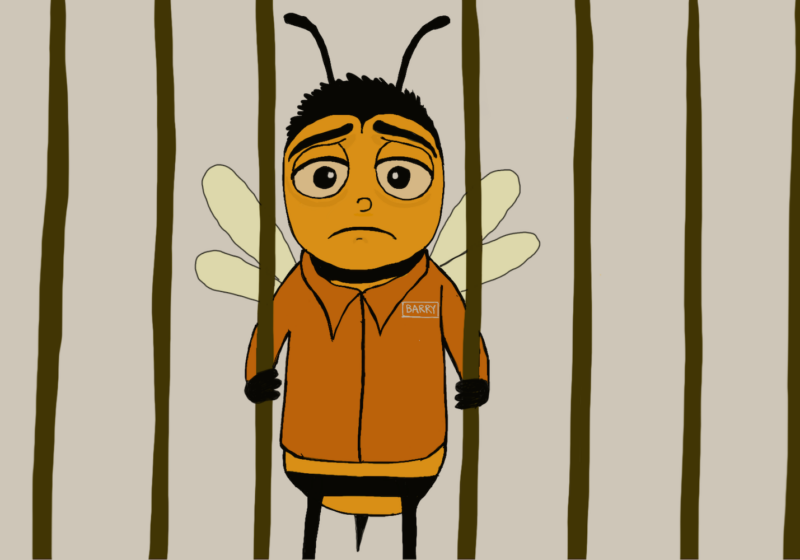If we continue at our current production rate, the World Economic Forum predicts that by 2050 there will be more plastic than fish in the ocean. And today, there is a garbage island thrice the size of France floating in the Pacific Ocean, as well as over 400 dead zones exist in our seas.
Many of us have heard these statistics before on social media posts or by word-of-mouth. They force us to wonder with almost debilitating dread if there is any hope for humanity at all. In her presentation this past week, Alexandra Cousteau, a world-renowned environmental advocate, offered a glimmer of hope in an age of overwhelming nihilism.
Coming from a long line of environmentalists, Alexandra Cousteau is the granddaughter of Jacques Cousteau, a French naval officer who pioneered both SCUBA diving and the marine conservation movement. She is the Senior Advisor to Oceana and founder of the Oceans 2050 Initiative, which seeks to restore ocean abundance by 2050. Cousteau spoke as part of the College in Arts, Sciences, & Engineering Speaker Series: Difficult Conversations as a Catalyst for Change. This semi-annual event began in 2018 and has continued to bring thoughtful, provocative speakers to our campus.
Cousteau’s talk, titled “Telling the Story of Our Water Planet: Innovation in Filmmaking and Social Media to Affect Environmental Change,” focused on the importance of using innovation and technology to create environmental solutions with a focus on restoration rather than preservation.
She described our current approach to conservation as a “zero-sum game” between environmental advocates and economic actors. An endangered species habitat can either be protected or developed; a polluted stream can either be cleaned or left to deteriorate. With this approach, we are simply reacting our way into the future. Both teams, the environmentalists and the economists, are on the defensive, yet they are all playing a losing game.
When it was founded in the 1960s and ’70s, the environmentalist movement focused heavily on bolstering conservation efforts. It was an effective tool in the age of Cousteau’s grandfather, when plastics were young and political gridlock was unborn. But the terrible reality is that we have lost 50% of our oceanic ecosystems since 1950. Conservation is no longer enough. Instead, Cousteau urges us to place our energy into rebuilding abundance. Though we cannot entirely regain what we have lost, we can create a new age of biological richness for the creatures still living in the sea.
Throughout her opening speech, Cousteau discussed the challenges facing our oceans and the “toolkit of solutions” that lies at our fingertips. She explained the power of seaweed farming and its phenomenal ability to sequester carbon. She talked of 3D printing coral reefs rather than painstakingly growing, gardening, and out-planting tiny coral samples. She discussed the Blue Carbon Initiative and its goal to restore coastal marine environments long-term through policy change and community engagement. Most of all, she focused on the youth and our amazing power for driving political change. Activists like Greta Thunberg, Isra Hirsi, and Xiye Bastida are all passionate young voices pushing lawmakers to action, and their efforts are indispensable in our mission to rebuild the oceans.
Still, there are no doubt challenges in Cousteau’s mission. Though the oceans are essential to our global ecosystems, ocean conservation was not even mentioned in the 2021 United Nations Environment Assembly and is the most poorly funded of its 17 Sustainable Development Goals. Our oceans span entirely disparate communities, meaning ocean conservation is often ripe with inequalities in its approach and implementation. Though the science exists, lawmakers need to employ these solutions efficiently and equitably, which is far easier said than done.
Despite these obstacles, Cousteau’s message was ultimately one of extraordinary hope in the face of adversity. She said her grandfather often credited his success in marine conservation to living in his “lucky moment” in history. But right now, it can often feel like we are stuck in a particularly unlucky moment in time.
When her grandfather began to make documentaries about the ocean, he was one of only a few voices speaking up about environmental degradation. Now, with the advent of social media, we are constantly inundated with news about pandemics and political upheaval. How does one person inspire change when it’s so hard to be heard?
Cousteau believes that in the 21st century, environmentalism no longer depends on the messenger. Instead, it relies on a common message. The beautiful thing about social media is that it gives thousands of different ecological ambassadors the ability to connect with millions of niche audience members. Greta, Isra, and Xiye all have their own followers, while older environmentalists like David Attenborough and Jane Goodall have others.
Modern environmentalism is no longer the work of a few — it is the work of many separate, dedicated individuals with a common vision for change. Together, we can reinvigorate hope and rebuild our oceans. Together, we can create our own “lucky moment” in history.
Sources:
- https://www.futureagenda.org/foresights/plastic-oceans/#:~:text=Industry%20experts%20expect%20that%20by,danger%20to%20the%20world%27s%20seas
- https://www.cnn.com/2018/03/23/world/plastic-great-pacific-garbage-patch-intl/index.html
- https://www.nationalgeographic.org/encyclopedia/dead-zone/#:~:text=Scientists%20have%20identified%20415%20dead%20zones%20worldwide





